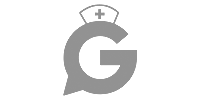Becoming a nurse is a noble profession that requires dedication, compassion, and hard work. It is a career that offers a wide range of opportunities, from working in hospitals and clinics to serving in the military or working in research. However, before embarking on this path, it is important to consider whether it is worth becoming a nurse. In this article, we will explore the benefits and drawbacks of pursuing a career in nursing.
Benefits of Becoming a Nurse
Job Security
One of the biggest advantages of becoming a nurse is job security. The demand for nurses is high and is expected to continue to grow in the coming years. According to the Bureau of Labor Statistics, employment of registered nurses is projected to grow 7% from 2019 to 2029, faster than the average for all occupations. This means that there will always be a need for nurses, and job opportunities will be plentiful.
Competitive Salary
Another benefit of becoming a nurse is the competitive salary. Nurses are well-compensated for their work, and the salary can vary depending on the level of education and experience. According to the Bureau of Labor Statistics, the median annual wage for registered nurses was $75,330 in May 2020. This is higher than the median annual wage for all occupations, which was $41,950.
Flexibility
Nursing is a flexible career that offers a variety of work settings and schedules. Nurses can work in hospitals, clinics, schools, nursing homes, and other healthcare facilities. They can also work in non-traditional settings such as research labs, insurance companies, and government agencies. Nurses can choose to work full-time, part-time, or on a per diem basis. This flexibility allows nurses to find a work-life balance that suits their needs.
Opportunity for Advancement
Nursing is a career that offers many opportunities for advancement. Nurses can pursue advanced degrees such as a Master of Science in Nursing (MSN) or a Doctor of Nursing Practice (DNP). With advanced degrees, nurses can become nurse practitioners, nurse anesthetists, or nurse midwives. These advanced practice nurses have more autonomy and can provide a wider range of services to patients.
Drawbacks of Becoming a Nurse
Physical Demands
Nursing is a physically demanding job that requires long hours of standing, walking, and lifting. Nurses may be required to work 12-hour shifts, which can be exhausting. They may also be exposed to infectious diseases and hazardous materials, which can be a risk to their health.
Emotional Demands
Nursing is also an emotionally demanding job. Nurses are often responsible for caring for patients who are sick, injured, or dying. They may witness traumatic events and deal with difficult patients and families. This can take a toll on their mental health and lead to burnout.
Education and Training
Becoming a nurse requires a significant amount of education and training. Nurses must complete a nursing program, which can take anywhere from two to four years. They must also pass the NCLEX-RN exam to become licensed. Continuing education is also required to maintain licensure and stay up-to-date with the latest advances in healthcare.
Conclusion
In conclusion, becoming a nurse is a rewarding career that offers many benefits, including job security, competitive salary, flexibility, and opportunity for advancement. However, it is important to consider the physical and emotional demands of the job, as well as the education and training required. Ultimately, whether or not it is worth becoming a nurse depends on the individual's personal goals, values, and interests.







